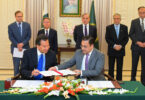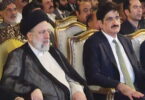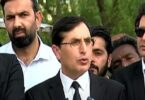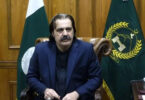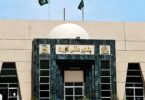F.P. Report
Islamabad: Federal Minister for Climate Change Senator Mushahidullah Khan issued a statement regarding heat wave. He said that I want to take this opportunity to elucidate the issue pertaining to severe heat wave incidents. Heat-wave is a prevalent climate related natural hazard. Heat-waves are understood as unusual period of hot and humid or hot and dry conditions which prevail from three to five day during a summer season.
He further added that some experts claimed that heat wave was a symptom of global climate change, aggravated by deforestation, expansion of asphalt-made super highways, and rapid urbanization. There has been a significant rise in the Earth’s average temperature over the last 100 years due to which we are experiencing such extreme weather conditions both in summers and winters. Climate science has confirmed that because of global warning such events will be more frequent and more intense.
He further highlighted that 2015 heat-wave event of Karachi took more than 1200 human lives. On the heat index scale, in Karachi, during this event, the maximum temperature recorded was 44.8°C but the heat index was around 66°C on the peak heat wave day i.e. 20th June 2015 because of low air pressure and wind speed and very high humidity. The main causes of deaths indentified were heatstroke and de-hydration. Ministry of Climate Change considering this climatic hazard constituted an Expert Group to develop recommendations to address such a situation in future.
He also said “The anticipated rise in temperature and frequency of heat waves in the country demands a comprehensive strategy to cope with this type of disastrous events in future. In this regard, provincial governments are requested to take necessary steps to tackle heat wave situations and also consider following recommendations. Capacity of individuals and communities may be built to respond to the heat stress during heat-waves by raising heat-health awareness campaigns in the country before the onset of a heat waves season. Subjects on disaster due to different natural hazards and their management may be included in the curriculum at school and college levels. Green spaces may be increased by tree plantation in the city on emergency basis. Provincial and District governments should issue special directives in this context besides monitoring its implementation.
The heat island effect can be counteracted slightly by using white or reflective materials to build houses, roofs, pavements, and roads, thus increasing the overall albedo of the city. Green roofs are another method of decreasing the urban heat island effect. Green roof is the practice of having vegetation on a roof.
The plants that are on the roof increases the albedo and decrease the urban heat island effect. Proper town planning rules and regulations may be observed for all on-going and in future townships. “Cool Centers” facilitated with drinking water, fans etc may be established at public places and along the main avenues, besides protection and development of tree shaded rest areas.

